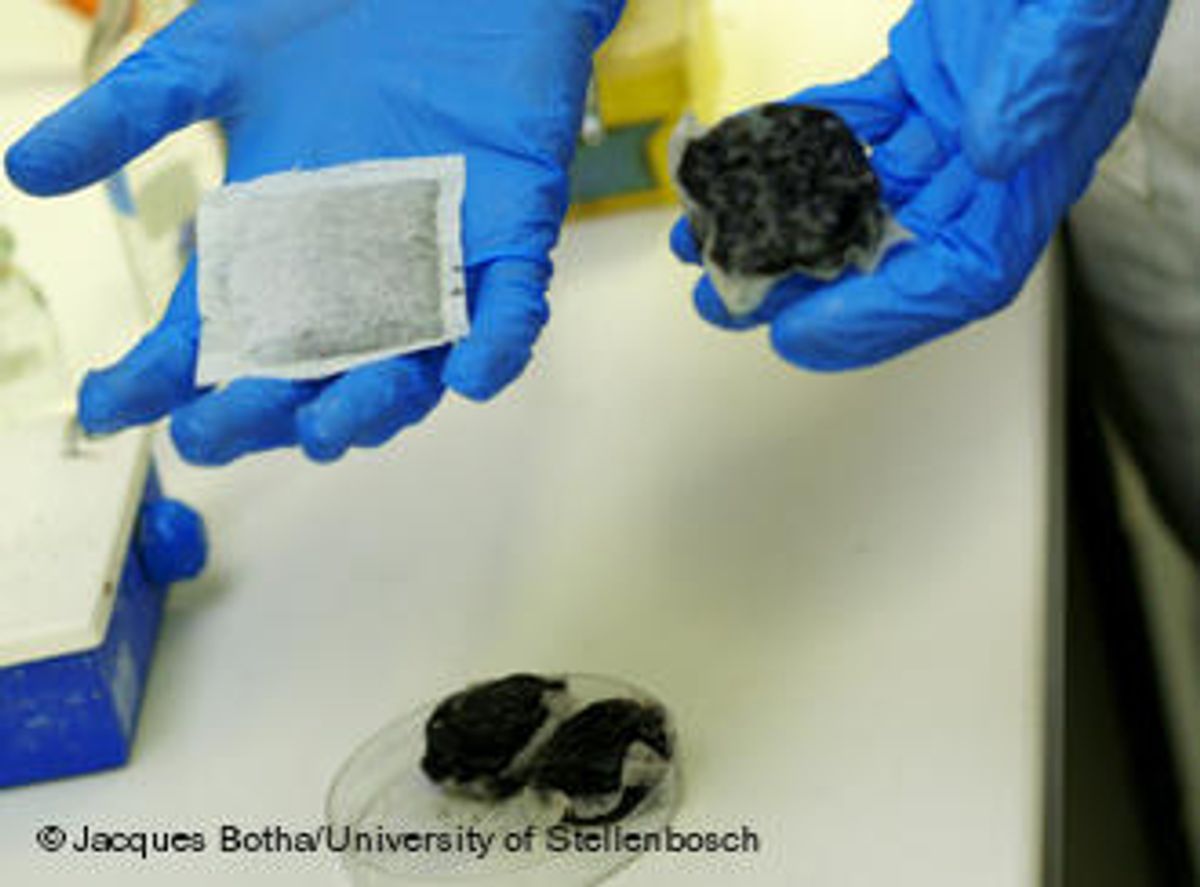It seems that my criticisms of the Friends of the Earth’s (FoE) overly ideological report on nanotechnology’s role in improving our environment and enabling alternative energy are not alone. The reports continues to garner more sharp rebukes, like here and here.
"This project takes nanotechnology to the poorest of the poor people who live in this world, and it will make a difference in their lives," said Eugen Cloete, who in addition to inventing the filter is dean of the faculty of science at Stellenbosch University and chair of Stellenbosch University's Water Institute.
And anticipating the immediate knee-jerk reaction that this solution is probably more expensive than other methods of providing clean drinking water, Marelize Botes, who is analyzing the tea bags in her in her laboratory at the University of Stellenbosch in South Africa, said, "The filter is much cheaper than bottled water as well as any other filter on the market."
"It is simply impossible to build purification infrastructure at every polluted stream," Cloete said. "So we have to take the solution to the people. The water is cleaned right then and there when you drink from the bottle."Researchers from every imaginable scientific discipline looking for ways to apply nanotools and nanomaterials to every imaginable application, like clean drinking water, like clean energy, like energy conservation is not in itself a crime against the planet Earth. However, depriving the rest of us from these potential solutions may very well be.
Dexter Johnson is a contributing editor at IEEE Spectrum, with a focus on nanotechnology.




